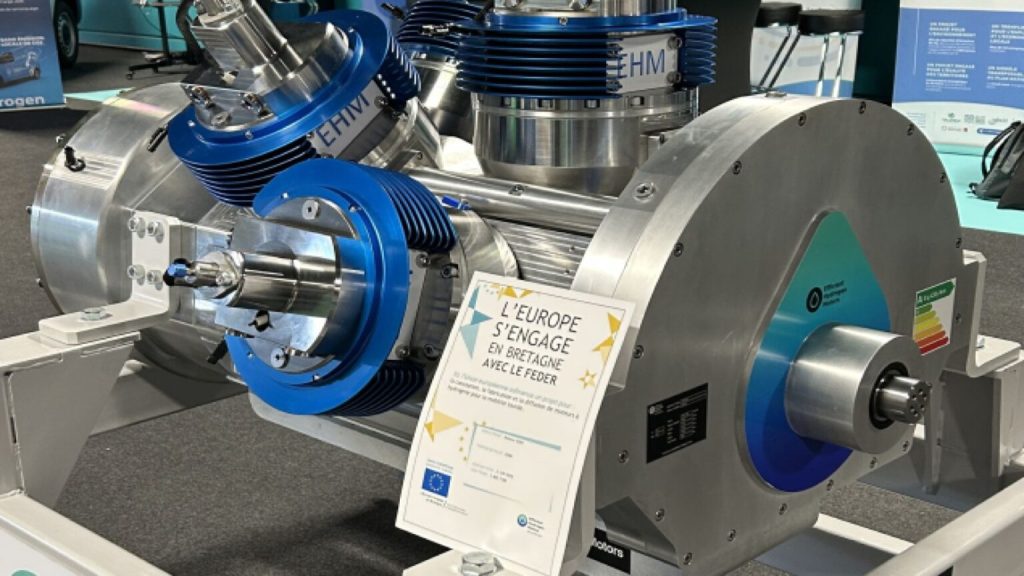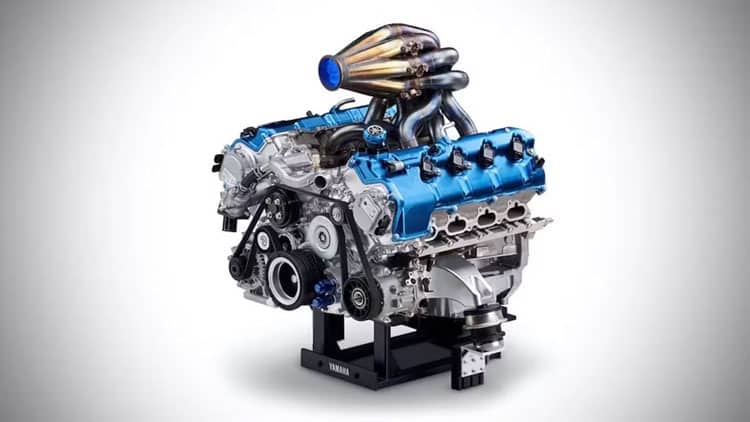On September 22, 2023, EHM (Efficient Hydrogen Motors) unveiled a groundbreaking 265kW hydrogen engine during Brittany Day in Saint-Brieuc, Brittany. Designed for large vehicles such as coaches and trucks, this revolutionary engine will debut in a Transdev Bretagne coach. Unlike traditional combustion engines reliant on fossil fuels, this hydrogen engine offers a cleaner, more sustainable alternative by using hydrogen as its only fuel source.
Redefining Sustainable Mobility with Hydrogen

EHM’s hydrogen engine marks a significant milestone in the evolution of sustainable transportation. Hydrogen as a fuel has long been heralded as a solution to reduce CO2 emissions, and EHM’s advanced technology is set to make that vision a reality. Unlike electric vehicles (EVs), which rely heavily on batteries and rare earth metals, hydrogen engines provide a more environmentally friendly solution for heavy-duty applications. With its five-stroke combustion cycle, this engine delivers remarkable efficiency and fewer harmful byproducts, such as nitrogen oxides (NOx), with no CO2 emissions. The combustion of hydrogen only produces water vapor.
This innovative approach makes hydrogen engines a powerful tool in addressing urban air pollution, which is crucial as cities increasingly push for stricter emissions standards. Additionally, EHM’s hydrogen engine is designed to minimize the use of scarce materials, presenting a more sustainable option for the future of mobility compared to battery-dependent EVs.
Versatility Across Industries and Applications
The adaptability of hydrogen engines opens up exciting possibilities for a wide range of industries. Initially deployed in a Transdev coach, the engine has the potential to power not only passenger coaches but also freight trains, off-road vehicles, and even power generation equipment. This broad application base positions hydrogen engines as a serious contender to challenge battery electric technologies in areas where EVs struggle, such as long-haul transportation, industrial machinery, and off-grid energy solutions.
This versatility also extends to existing vehicles. Hydrogen engines could be retrofitted into older vehicles, extending their service life and reducing the need to manufacture new cars. This could lead to significant cost savings and a more efficient and eco-friendly automotive industry.
Hydrogen Engines: A Future-Proof Investment
EHM’s hydrogen engine could become a key player in the race to decarbonize transportation. The environmental advantages are undeniable, as hydrogen combustion emits only water vapor. Compared to gasoline or diesel, hydrogen offers a cleaner, more sustainable solution with lower NOx emissions and no reliance on rare metals. This positions EHM’s engine as a future-proof technology, especially as global demand for eco-friendly solutions grows.
From an economic perspective, the hydrogen engine offers significant benefits. As electric vehicle technology costs continue to rise and rare metal resources dwindle, hydrogen technology becomes an increasingly attractive alternative. With the backing of local and regional governments and funding from initiatives like the ERDF, EHM is well-positioned to mainstream its technology.
The Future of Transportation: Hydrogen-Powered Sustainability
EHM’s hydrogen engine could be a game-changer for the transportation industry. It offers a compelling alternative to diesel engines and electric vehicles with zero harmful emissions and superior efficiency. Its potential to reshape industries—from freight transport to power generation—highlights the growing importance of hydrogen as a clean energy source.
In the future, hydrogen engines could compete directly with electric vehicles, particularly in sectors where battery technology faces limitations. As governments worldwide continue to invest in hydrogen infrastructure, this technology may soon play a critical role in reducing carbon emissions on a global scale.
The hydrogen revolution is here, and EHM’s engine may be the key to a cleaner, more sustainable transportation future.
This version weaves in the broader implications for the future of transportation, emphasizing hydrogen’s potential to disrupt not only the automotive industry but also heavy-duty sectors and energy infrastructure.


